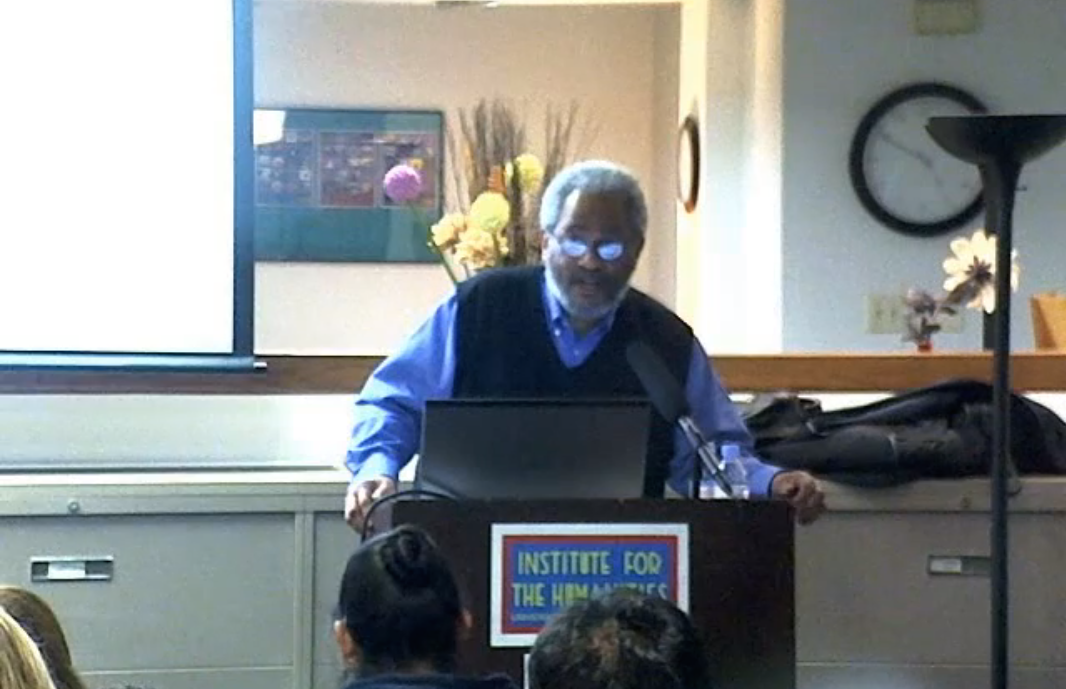The Institute for the Humanities at the University of Illinois at Chicago (UIC) has uploaded a talk by b2 editor and contributor Anthony Bogues called “The Black Jacobins and the Long Haitian Revolution: Archives, Historiography, and the Writing of Revolution” and you can watch it below.
-
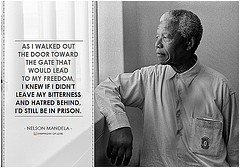
Mandela's Reflections: Meditations and Interventions from the b2 Collective
Editor’s Note
from Paul Bové
_Nelson Mandela died on December 5, 2013. Tony Bogues, a member of the boundary 2 Collective, was in South Africa, watching the endless coverage of the news and of Mandela’s life. Bogues had met Mandela during his time with the Jamaican government of Michael Manley, and he has spent considerable time working in South Africa, especially in Cape Town, on questions of freedom, archives, African and African Diaspora intellectual history, and political thought.
At least one generation of intellectuals had stood against apartheid and reflected on Mandela as a political figure of freedom and liberation. Mandela never produced anything equivalent to the political writings of a Gramsci, Fanon, or Césaire. Because of the media and the global support for the struggles he led, Mandela acquired a resonance with effects across the globe. His career, with all its changes, posed challenges for thinking about politics.
It seemed right that boundary 2 should take notice of Mandela and his influence. We decided to gather responses to Mandela as a political figure. b2 issued a call for very brief papers from several spots on the globe and from different generations. Our contributors have given us reason to feel this attempt was a success.
-
Mandela's Reflections
At least one generation of intellectuals had stood against apartheid and reflected on Mandela as a political figure of freedom and liberation. Mandela never produced anything equivalent to the political writings of a Gramsci, Fanon, or Césaire. Because of the media and the global support for the struggles he led, Mandela acquired a resonance with effects across the globe. His career, with all its changes, posed challenges for thinking about politics.
Editor’s Note from Paul Bové
Preface by Anthony Bogues
Mbu ya Ũrambu: Mbaara ya Cuito Cuanavale / The Cry of Hypocrisy: The Battle of Cuito Cuanavale by Ngũgĩ wa Thiong’o
Discomforts by Hortense Spillers
The Mandela Enigma by Wlad Godzich
Mandela, Charisma, and Compromise by Joe Cleary
Nelson Mandela on Nightline; or, How Palestine Matters by Colin Dayan
Or, The Whale by Jim Merod
Malaysian Mandela by Masturah Alatas
Mandela, Tunisia, and I by Mohamed-Salah Omri
Nelson Mandela by Ruth Y. Y. Hung
Mandela Memories: An African Prometheus by Ngũgĩ wa Thiong’o
Nelson Mandela: Decolonization, Apartheid, and the Politics of Moral Force by Anthony Bogues
Mandela’s Wholeness, Perhaps Infinite by Dawn Lundy Martin
[untitled] by Gayatri Chakravorty Spivak
Mandela’s Gift by Sobia Saleem
-
Mandela's Reflections: Nelson Mandela: Decolonization, Apartheid, and the Politics of Moral Force
Nelson Mandela was one of the world’s most important twentieth-century political prisoners. At a moment when world politics was in the throes of the “Cold War,” Mandela’s imprisonment focused much of the world’s attention on the authoritarian racial system in South Africa—apartheid.
At the beginning of the twentieth century, the white settler country, the Union of South Africa, became independent. By then, South Africa was a society where all the processes of colonialism, its ways of life, its forms of rule, its ideology of white and European supremacy, its construction of African ethnic groups into “natives,” making them nonhuman, had congealed into a specific historical form. As Njabulo Ndebele writes about twentieth-century South Africa, “Everything [in South Africa] has been mind-bogglingly spectacular: the monstrous war machine developed over the years; . . . mass shootings and killings; . . . the mass removals of people; . . . the luxurious life-style of whites. . . . It could be said, therefore, that the most outstanding feature of South African oppression is its brazen, exhibitionist openness.” Apartheid was a regime of death and murder, and as Antjie Krong tells us, deaths were often “so gruesome as to defy the most active imagination.”
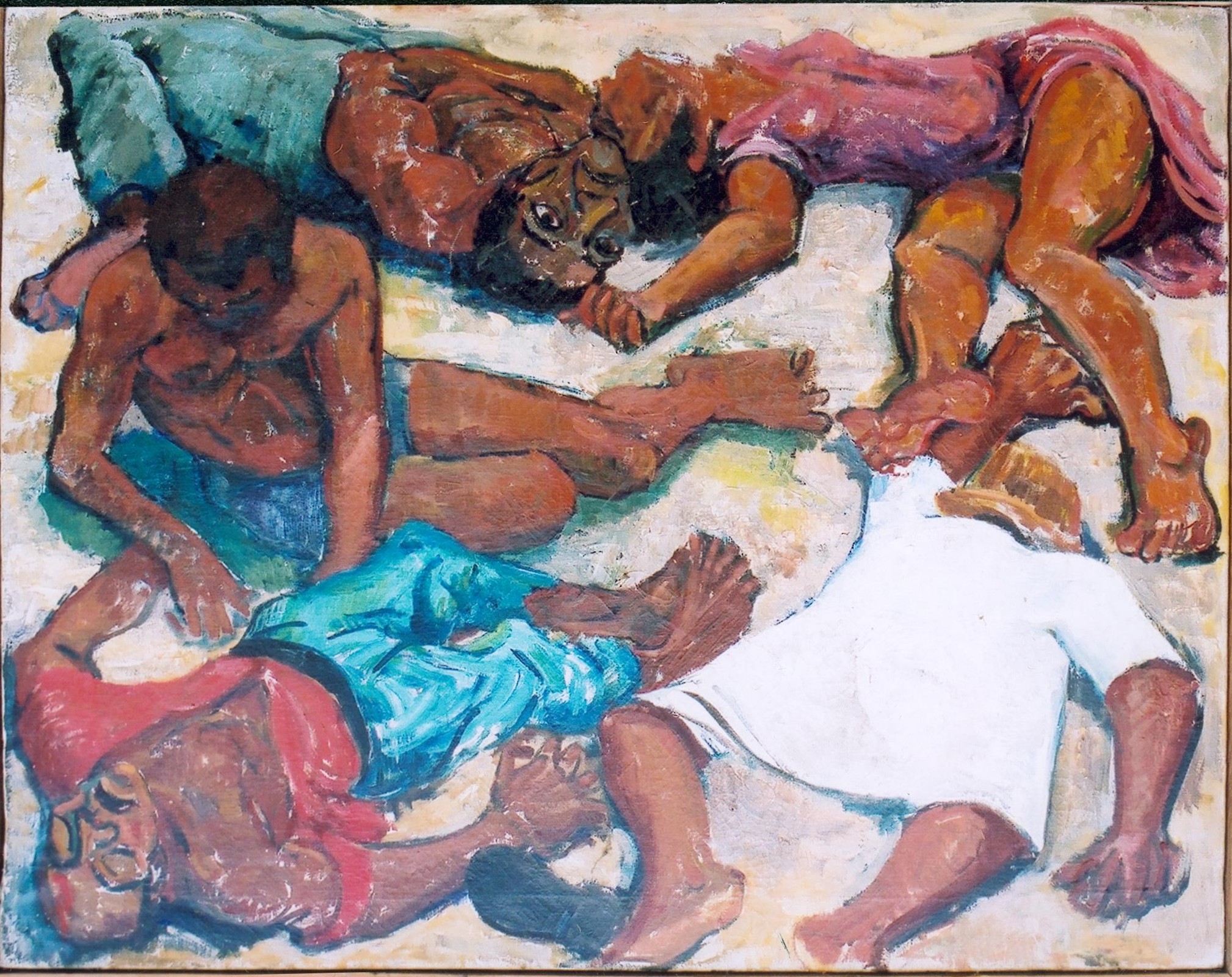 It was against this regime of white racial domination, death, and murder that Mandela began his political life. During that life, he was a radical member of the ANC Youth League, a member of the South African Communist Party, an advocate of peaceful confrontation, then of armed struggle. In his early political life, Mandela was an African nationalist with a radical anticolonialist outlook who belonged in the late 1950s and ’60s to that historic cluster of African anticolonial figures. At the same time, he was a courageous figure, one who took physical risks.
It was against this regime of white racial domination, death, and murder that Mandela began his political life. During that life, he was a radical member of the ANC Youth League, a member of the South African Communist Party, an advocate of peaceful confrontation, then of armed struggle. In his early political life, Mandela was an African nationalist with a radical anticolonialist outlook who belonged in the late 1950s and ’60s to that historic cluster of African anticolonial figures. At the same time, he was a courageous figure, one who took physical risks.For years, the armed wing of the ANC, Umkhonto we Sizwe (Spear of the nation), had its headquarters in South Africa, until a South African police raid captured the leadership. At the famous Rivonia trial after the raid, the leadership, including Mandela, all expected to be sentenced to death. Instead, they were sent to Robben Island.
There, during a period Mandela calls the “dark days,” he developed a practice of politics in which moral force was the critical element. The struggles he waged for the dignity of prisoners on Robben Island, the relationships he developed with racist warders, turning them from foes into his “honor guard” when he was allowed to meet his lawyers, were the result of an extraordinary practice of a politics in which human dignity was deployed against brutality, where there was the constant effort to construct a kind of politics in which moral force would force oppression to yield ground. It was the kind of politics in which, as he says, “we fought injustice to preserve our own humanity.” This is a form of politics in which creating a dignified, unbroken self is the most profound of political acts done under the most adverse of conditions.
This kind of politics has a long history in anticolonial and antiracist political practices. Mandela’s practice of politics as a moral force led him to attempt to produce a process of reconciliation and, if possible, justice once the apartheid regime ended. Forgiveness was not a personal matter; rather, it was a political calculation of great risk. Could the politics of moral force bend the beneficiaries of the apartheid regime into themselves taking the risk, not of support for the ANC but of doing the necessary work to build a new South Africa? Nearly twenty years after the 1994 election, which ushered in political equality, this remains one of the unanswered questions of South Africa.
In the politics of moral force, the political personality is central. Mandela was well suited for this role. He had devoted his life to ending the system; he had been jailed for his beliefs and his political practice; he had suffered and therefore had the moral authority to turn that suffering into a political force of change.
The April 1994 election in South Africa was a twentieth-century watershed. When Mandela walked out of jail that day in 1992, the joy many experienced was an acknowledgment that, at long last, the final bastion of racial oppression that had accompanied colonial power was at an end. Mandela was central to that drama, and he represented both the end as well as the possibility of a new beginning. That currently what was seen in South Africa as this exceptional moment of possibility has now stalled gives us all pause and should be generative of new thinking. But in that moment of 1994, in that moment when it seemed that Africa would lead the world in a new way of politics and rule, would redefine politics—in that moment, we remember a possibility, and in that memory we have hope.
I met Mandela twice, once in Jamaica and then again in South Africa on the eve of the 1994 general election. It is the second meeting that stays with me. Late at night in a Johannesburg hotel, he recalled the highlights of the struggle against the apartheid regime. There was nothing about him, not one story of self, in the recounting. Instead, he talked about the young people who were in rebellion in the townships, about Chris Hani, the African general secretary of the South African Communist Party, who had then just been recently assassinated, and about the support given to the ANC and the general Southern African liberation movements by Cuba. The most searching segment of the discussion that night was his preoccupation with the question, what would become of the ANC after the elections? In the room, we were all aware of the fate of twentieth-century national liberation movements in political office, and so there was a robust debate about what could be done in order to ensure that the ANC would not go down that path. This was Mandela the party leader thinking about the possible future of the political party he led. When he left us that night, those of us in the meeting knew that we had been in the presence of a rare political figure, whose every fiber had been honed by one of the central questions of politics, of all politics—how do we construct a just and equal association of humans into a polity?
–Anthony Bogues
-
Mandela's Reflections: Preface
Very few political figures in the late twentieth century evoked hope in the way that Nelson Mandela did. In conventional representative politics, figures fleetingly emerge who inspire the possibility of the new and then flicker before adjusting to the “real world.” It is not that Mandela did not adjust. (For example, after his trip in the 1990s to Davos and the world economic conference, he proposed changing the ANC’s economic transformation program to a market-based one.) Rather, it is that no matter what adjustments were made, one got the sense his reasons were tactical, not overarching and strategic. Moreover, it is clear that as a political figure he embodied the possibility that justice could be done differently. Whether that is so is still an open question. Mandela faced several conundrums: Would power yield itself without radical confrontation? What would be the consequences of such confrontations? How to create profound social and political change and usher in the new order, and on what grounds of politics could this occur within the complex logic of making attempts to effect change by acting in humane ways? For historical and contingent political reasons, he may have acted in a way that made an attempt to find a novel way, but his commitment of using force of a different kind to make a new society resonated with many in a world where the mythos of the unencumbered self and market fundamentalism is the common sense of our times.
No other figure of the last twenty years of the twentieth century drew to his cause and commitments so many people across the world.
The personal and political vignettes represented in this dossier are a very modest attempt to think about the man and his time. They range from poetry to explicit political reflections on this figure. The collection ends with a poignant piece from a young person who, told about our efforts, was moved to write and send us her pages. While this dossier does not cover everything, two things are clear. First, that Mandela was an iconic figure in the world. We are aware how power re-creates and attempts to absorb such figures, gutting them of their radical meaning. This has happened, and continues to happen, with Mandela. But, second, in our contemporary moment, current struggles are still deeply linked to the struggle for which he spent twenty-odd years in prison—the struggle to be treated with dignity and equality as a human being. It is the latter which will shape the complex legacy he left behind.
-Anthony Bogues
-
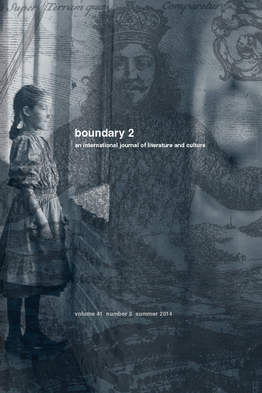
Summer 2014: Volume 41, Number 2
In Memoriam of Stuart McPhail Hall
Each crisis provides an opportunity to shift the direction of popular thinking instead of simply mirroring the right’s populist touch or pursuing short-term opportunism. The left…must adopt a more courageous, innovative, “educative” and path-breaking strategic approach if they are to gain ground.
–Stuart Hall and Alan O’Shea, “Common-sense Neoliberalism”
Summer 2014: Volume 41, Number 2
Intervention / Mandela’s Reflections
Editor’s Note from Paul Bové:
…We decided to gather responses to Mandela as a political figure. b2 issued a call for very brief papers from several spots on the globe and from different generations. Our contributors have given us reason to feel this attempt was a success.Preface by Anthony Bogues
Mbu ya Ũrambu: Mbaara ya Cuito Cuanavale / The Cry of Hypocrisy: The Battle of Cuito Cuanavale by Ngũgĩ wa Thiong’o
Discomforts by Hortense Spillers
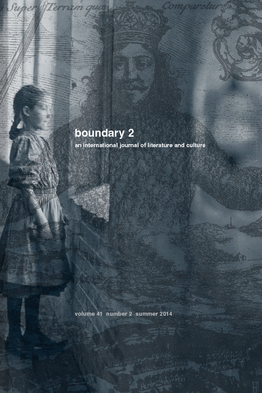
The Mandela Enigma by Wlad GodzichMandela, Charisma, and Compromise by Joe Cleary
Nelson Mandela on Nightline; or, How Palestine Matters by Colin Dayan
Or, The Whale by Jim Merod
Malaysian Mandela by Masturah Alatas
Mandela, Tunisia, and I by Mohamed-Salah Omri
Nelson Mandela by Ruth Y. Y. Hung
Mandela Memories: An African Prometheus by Ngũgĩ wa Thiong’o
Nelson Mandela: Decolonization, Apartheid, and the Politics of Moral Force by Anthony Bogues
Mandela’s Wholeness, Perhaps Infinite by Dawn Lundy Martin
[untitled] by Gayatri Chakravorty Spivak
Mandela’s Gift by Sobia Saleem
_____Three Models of Emergency Politics by Bonnie Honig
Democracy: An Unfinished Project by Susan Buck-Morss
The Future of Reading? Memories and Thoughts toward a Genealogical Approach by Hans Ulrich Gumbrecht
_____
b2 Interview
History Unabridged: An Interview with Stefan Collini with Jeffrey J. Williams_____
Articles
King Kong in America by Arif DirlikHow Global Capitalism Transforms Deng Xiaoping by Ruth Y. Y. Hung
Is Dasein People? Heidegger According to Haugeland by Taylor Carman
It’s Only the End of the World by Ben Conisbee Baer
Passive Aggressive: Scalia and Garner on Interpretation by Andrew Koppelman
-
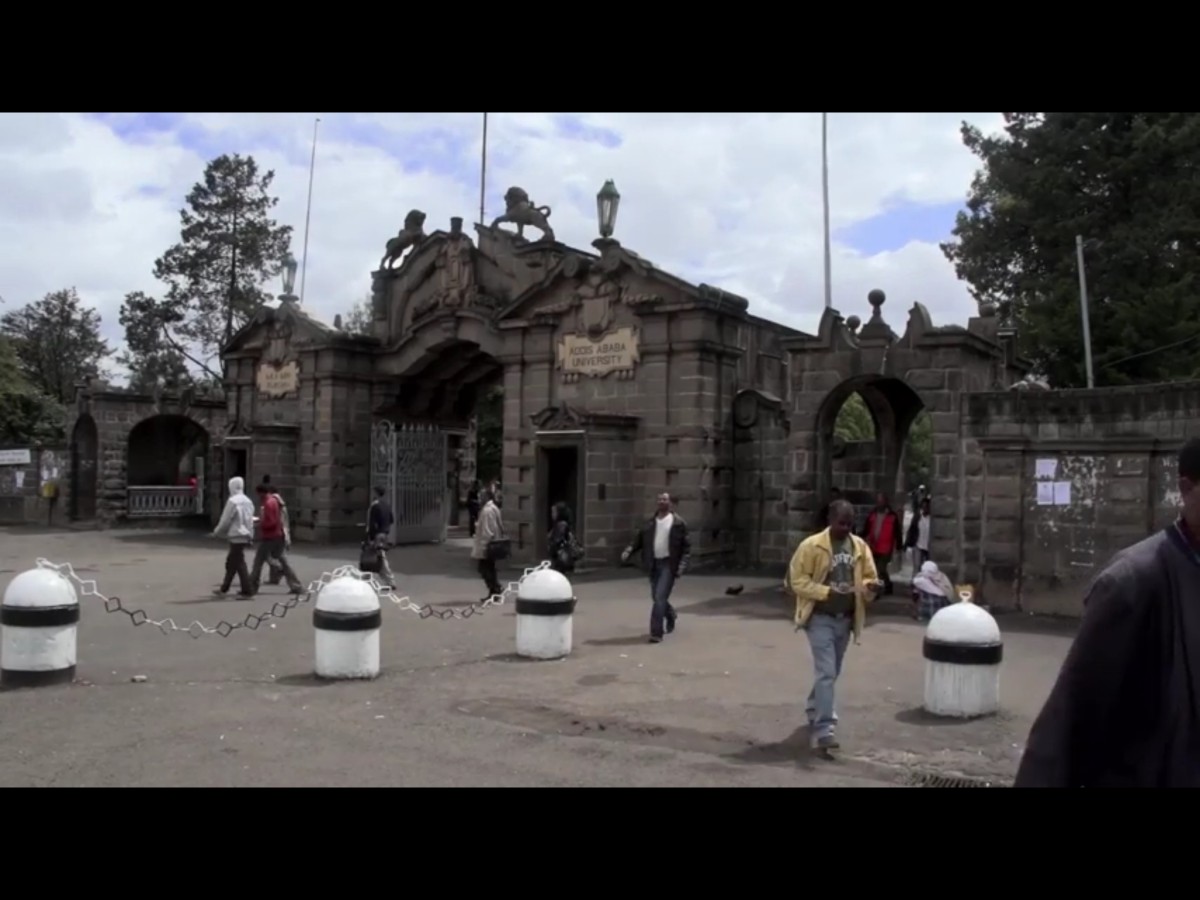
Towards Alternative Archives
Between 2010-2012, Anthony Bogues and Geri Augusto convened a critical global humanities summer institute at Brown University. As part of that program Bogues was invited to Addis Abbba, Ethiopia to continue these conversations. This is a short documentary on these conversations held in Addis Abba. Here Ethiopian scholars discuss their own practical and theoretical approaches to humanistic work, which draws on African thought and experience.
Video by the Watson Institute for International Studies.
-
The Many Faces of Toussaint L' Ouverture and the Haitian Revolution
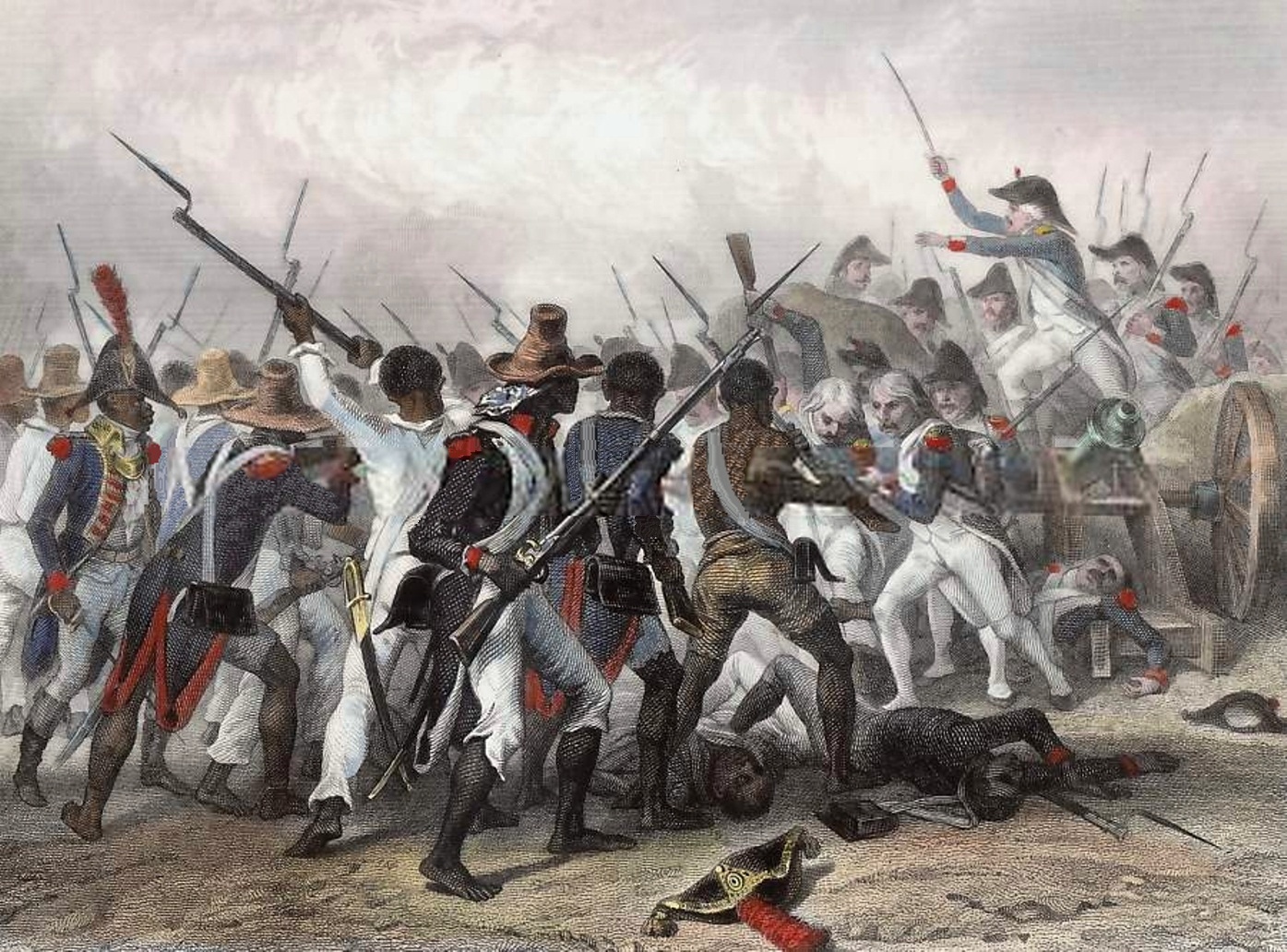 Brown’s Center for the Study of Slavery and Justice to host Haitian artist Edouard Duval-Carrié and b2er Anthony Bogues for an exhibition and discussion of the Haitian Revolution and the portrayal of Toussaint L’Overture. Opens May 22. Discussion on May 24. See here.
Brown’s Center for the Study of Slavery and Justice to host Haitian artist Edouard Duval-Carrié and b2er Anthony Bogues for an exhibition and discussion of the Haitian Revolution and the portrayal of Toussaint L’Overture. Opens May 22. Discussion on May 24. See here.“The Haitian Revolution was an event of world significance which challenged the then dominant system of racial slavery. This exhibition by one of Haiti's leading artists, Edouard Duval-Carrié, will pay attention to the many different ways in which the leader of the Revolution, Toussaint L'Ouverture, was portrayed.” Read more.
__
Prof. Bogues on “Practices of Freedom” in December, 2013:
-
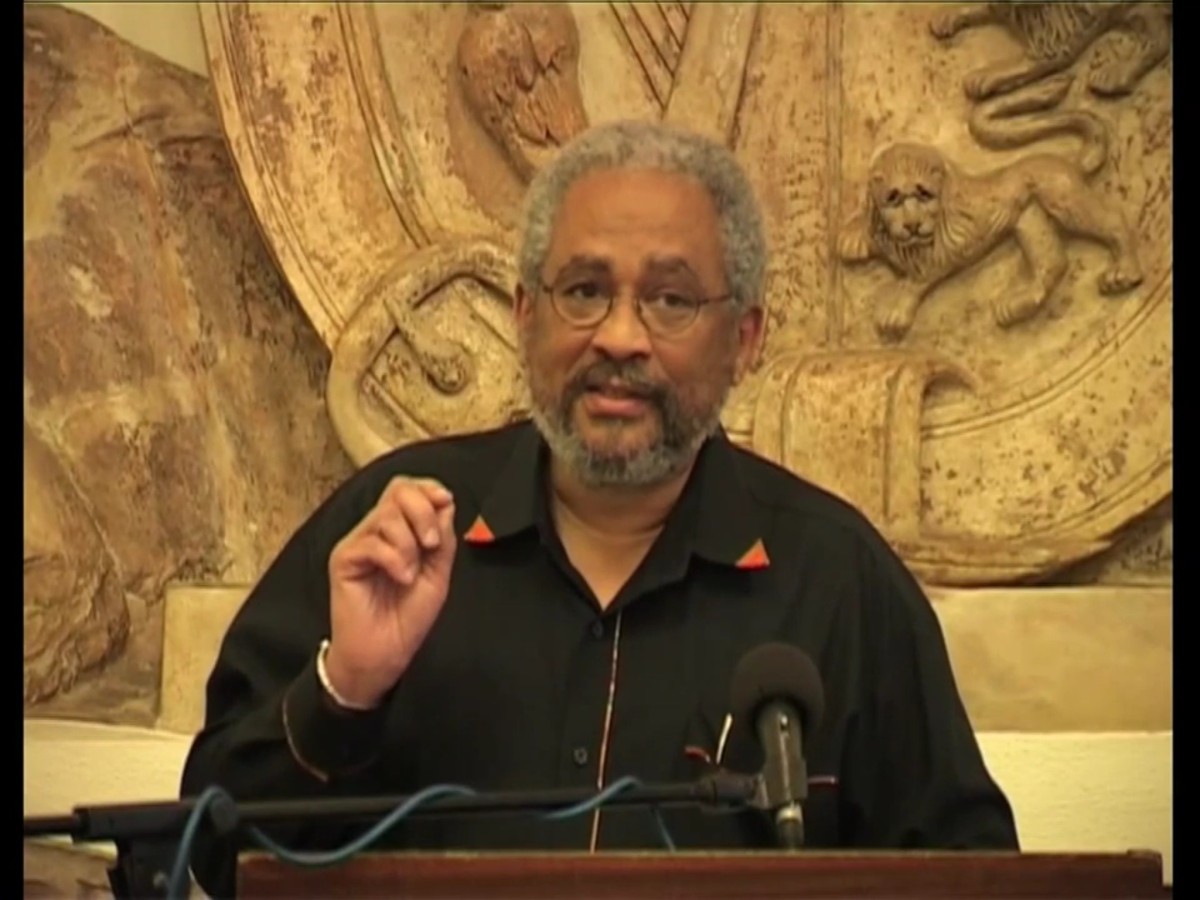
Anthony Bogues, "Practices of Freedom"
Anthony Bogues, at the introduction of the Ships of Bondage exhibit currently held in the Slave Lodge museum in Cape Town, South Africa (and features studies of the Amistad, the Sally, and the Meermin), speaks of slavery and freedom, representation, the sedimentary foundations of slavery, colonialism, colonial modernity and these historical processes that connected the world (41:56). Beginning with reflections on Toni Morrison’s Beloved and André Brink’s Philida, Professor Bogues asks, “How does one represent slavery?” alluding to the attempt “to represent what sometimes we cannot name,” as he wrestles with the idea of freedom as it pertains to the political, the historical and the practice of being human: his thoughts a direct contribution to what he calls “the public curriculum.”
